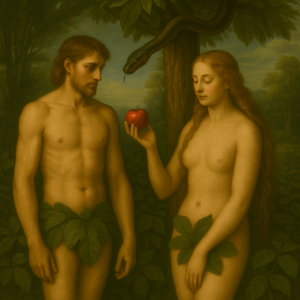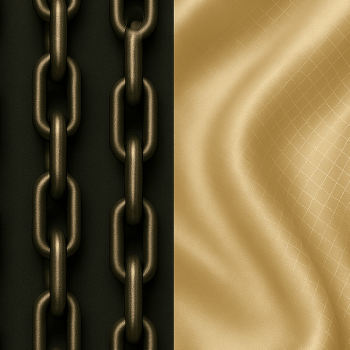Mythology can lead us toward or away from truth.
Anyone who studies mythology will recognize that many aspects of the Christian story are common archetypes in other traditions. Most primitive cultures developed creation stories and explanations for evil. Aspects of Jesus’ life are similar to those of other avatars and deities, such as Krishna and Osiris. Virgin birth, divine sonship and physical resurrection are examples.
Some Christians believe that Christian tradition is historical, while others’ traditions are mythological. But, traditions often share mythologies. The flood story was based on the Epic of Gilgamesh. The Bible and the Hindu Upanishads both used the “I AM” description for God. The Buddhists and the Christians both tell the parable of the prodigal son.

Mythology Can Lead Us Toward Truth
The recurrence of these stories speaks to their universality. We may NOT believe that Jesus or Horus were born of a virgin. We may NOT believe that Jesus or Dionysus were raised from the dead. Still, we can appreciate the deep meaning and rich significance of these symbols in our tradition and other traditions.
Many traditions do NOT interpret their scriptures literally. For example, Jewish scholars wonder if people like Adam, Abraham or Moses existed and whether events like the Exodus occurred. Buddhist scholars sometimes say, “Buddha, if such a person existed…” We can hardly imagine a Christian scholar saying, “Jesus, if such a person existed…”
Both Buddha and Jesus likely existed. But many Buddhists would pay attention to Buddha, whether he existed or not. And many Christians would NOT pay attention to Jesus if he did not exist.
Still, many scholars interpret the Bible stories allegorically, metaphorically, or mythically. Theologian John Dominic Crossan writes, “My point is not that those ancient people told literal stories and we are now smart enough to take them symbolically, but that they told them symbolically and we are now dumb enough to take them literally.”
Mythology Can Lead Us Away From Truth
In The Way, I write that scientists are learning more about the biology, chemistry, and physics of the universe. Our new understandings cast doubt on literal interpretations of the Bible. Thus, science does NOT confirm that the Earth is 6,000 years old or that it was created from nothing in seven days. The genetic record and the fossil record suggest that evolution happened.
Science does NOT confirm that Adam and Eve were historical people, that all humans descended from one couple, or that “Y-chromosome Adam” and “Mitochondrial Eve” lived at the same time. Now, if there was no Adam and Eve, no apple, and no talking snake, then there was likely no original sin, no cosmic rift between God and humanity, and no need for Jesus to die for our sins.
Now, we know that the Earth revolves around the sun, there is NOT a heaven above us or a hell below us, and there may be intelligent life on the other 100 sextillion planets in the known universe.
Those who think that we are the culmination of creation or that we were solely created in God’s image should take a long view—only 50,000 years ago, our ancestors were climbing trees for food, communicating in grunts, and coupling with Neanderthals. Singer Tom Waits reminds us that, “We are monkeys with money and guns.”
If God authored or inspired the Bible, then we would expect that the stories could stand the test of time. Instead, it looks like the authors did NOT know anything more than their contemporaries. Did Darwin know about evolution before God did? As one of my friends, a spiritual writer, often says, “If God wrote a book, I like to think that it would be clearer and kinder than this one.”
What Bible Might God Have Written?
At the end of several chapters in The Way, the book asks readers to “Imagine that…” These thought experiments challenge readers to “riff” on the content. They generate a lot of good discussion.
Imagine that the creation account suggested that we were related to all sentient beings, rather than suggesting that we were masters over them. And imagine that the descriptions of the universe suggested the age and the immensity of the universe and hinted at the possibility of life on other planets, rather than suggesting that humans and our planet are the pinnacle of creation.
Imagine that the Bible alluded to electricity or genetics or quantum mechanics or relativity, instead of writing within the limits of an Iron Age civilization. If the Bible showed any foreknowledge, then we would have all marveled at its prescience. (Sure, for many years, our ancestors would have wondered about the meanings, but when we came to understand it, we would have marveled.)
And imagine that the Bible suggested that we free our slaves, rather than suggesting that we treat them nicely. This might have altered the course of history, reduced much human suffering, and saved many, many lives. Surely, God did NOT intend for the Bible to be invoked by abolitionists and slaveholders alike.
Imagine that the Bible suggested that we wash our hands for hygenic reasons, rather than suggesting that we wash our hands for ritualistic reasons. This might have saved many, many lives. (Again, for many years, our ancestors would have wondered about the reasons, but when we came to understand it, we would have marveled.)
If the Bible described us and our place in the universe more accurately, more clearly, and more kindly, would we live our lives with more compassion and more wisdom? If its words were timeless, would the Bible have alleviated more suffering, ensured more humility, inspired more people, and instilled more confidence in the Christian description of God or Ultimate Reality?
Mythology can lead us toward or away from truth. Still, we can appreciate the deep meaning and rich significance of these symbols in our tradition and other traditions.
If you want to keep up with the latest from You Might Be Right, please subscribe.
The Way received a 2024 Nautilus Book Award.
If you enjoyed this article, please leave a comment at the bottom of this page.
Thanks for reading You Might Be Right!!












